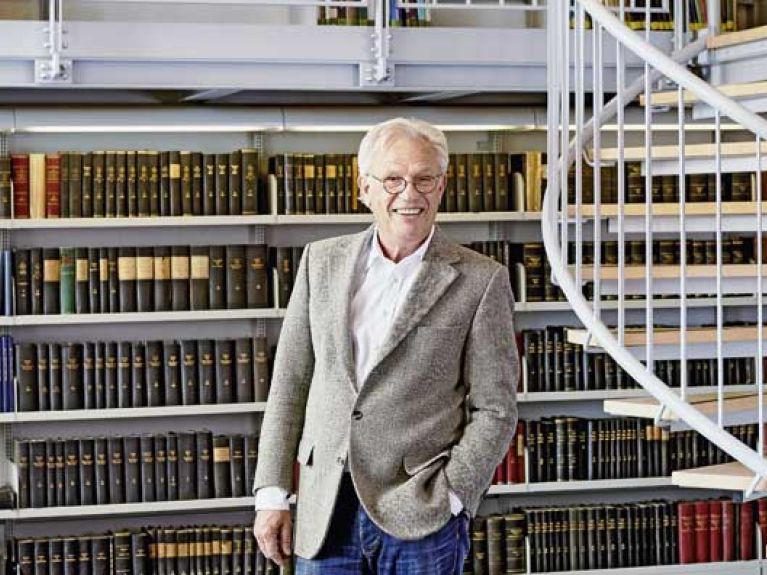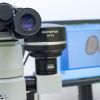“A contribution to the health of all peoples”
Rolf Horstmann fights for global health from his base in Hamburg. He leads the Bernhard-Nocht-Institute for Tropical Diseases.

Rolf Horstmann, doctor specialising in tropical diseases
A large office, a breath-taking view: the Elbe, the St Pauli Piers, the Blohm+Voss Shipyard. It's as typical a Hamburg image as you can imagine and yet there is one man sitting behind his desk who diverts his gaze away from the city, and whose attention never stays focussed on the city for long as it quickly turns to global issues. “Institute for Tropical Medicine” is what is written on the sign outside even though Rolf Horstmann is not a fan of this name. An “old colonial relict,” he says. It should actually be called the “Institute for Diseases of Poverty” but it has become an established name.
Horstmann is the chairman of the board at the Bernhard-Nocht-Institute. He has worked here for 40 years. According to Horstmann the institute has always had two main functions: it serves as a kind of bodyguard watching out for diseases which could be brought over to Germany. It is also a kind of samaritan, although he does not like this term either – too patronising – but it comes from a wealthy country's contribution to the health of all peoples.
The health of all peoples: when the Ebola epidemic broke out in 2014 the institute played a decisive role in combatting it. Staff travelled to West Africa while others remained examining the highly-dangerous virus in a special laboratory. When shortly afterwards the Zika virus broke out in South and Central America, 100 samples arrived in Hamburg every day since all the institutes in the affected countries were overloaded. “That really pushed us to our limits but it was a good feeling knowing that our work was being put to good use.”
At times like these Horstmann's job involves coordinating large-scale operations but his day-to-day work focusses on fundamental research in Africa. In cooperation with the University of Kumasi in Ghana he founded a research centre in a region plagued by malaria. Since then Horstmann's staff have examined children's genomes comparing 3000 from children who had contracted malaria with 3000 from healthy ones. They have examined thousands of adults, half of whom had the tuberculosis (TB) disease and the other half who did not. Armed with the knowledge that 90 percent of people infected with the TB bacteria do not fall ill with TB, they have been trying to ascertain how the body protects itself in such cases. And furthermore, how can you produce it for those who do not have such a natural protection?
The Bernhard-Nocht-Institute has been leading the centre in Ghana for some time now but this could soon change. There are three main parties working on the project: alongside the institute there is the University of Kumasi and the Ghanaian health ministry. “When they agree on who should take over management [of the centre], we will step away,” says Horstmann. It would be a last step towards equality. Horstmann believes we need to put a stop to this old way of thinking with rich countries helping the poor ones by sharing their knowledge, carrying out research and setting standards. The institute intends to track developments in Ghana and will respond to any questions that might arise, but Horstmann does not want to dictate to them in any way nor hold anything back which can grow without support from Germany. He would be happy just giving encouragement, especially when his institute's work here in Hamburg can help others from around the world.

